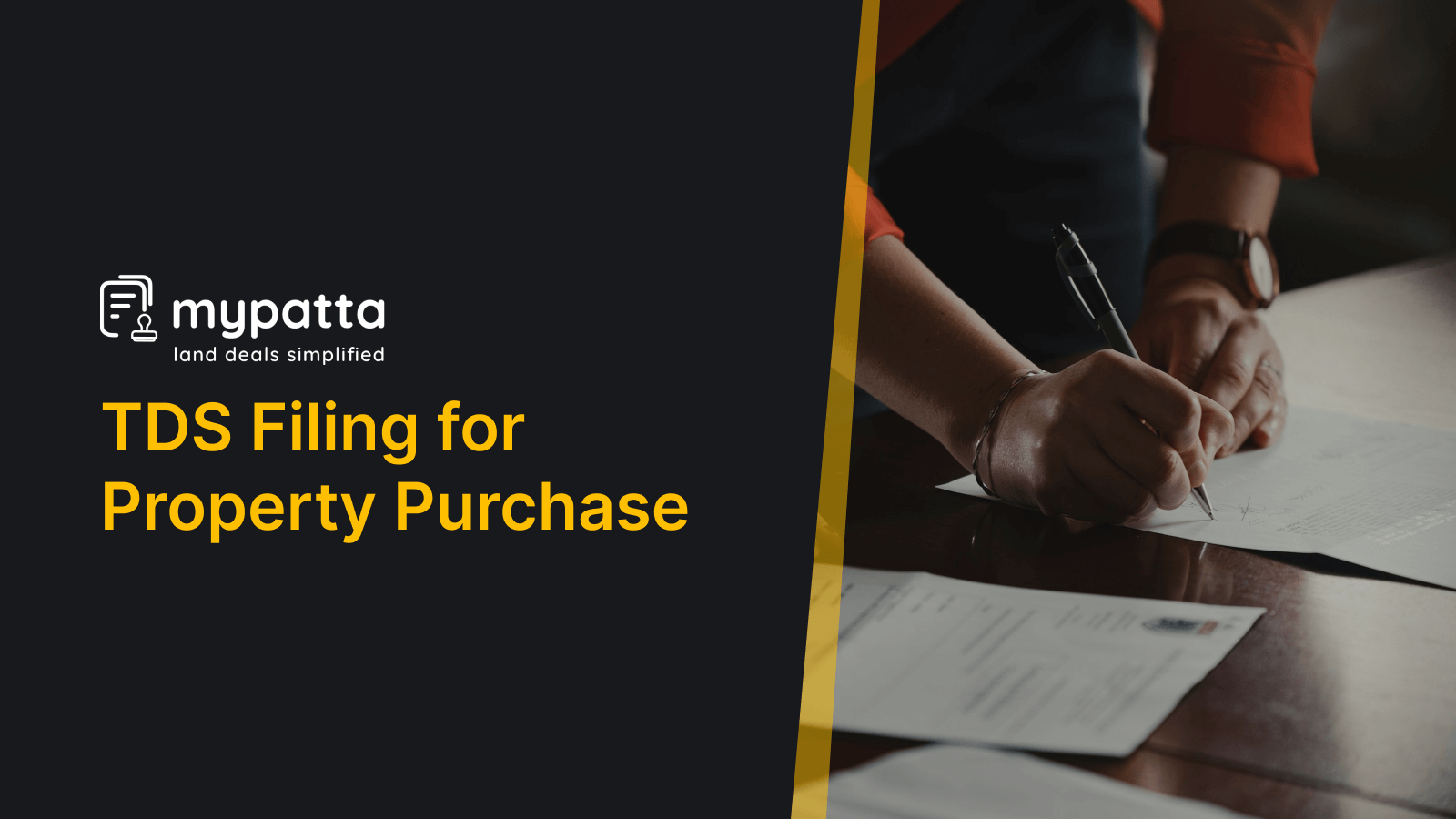Obtaining a possession certificate is an essential step for homeowners looking to confirm their rights to a property. The online application process for a possession certificate simplifies what used to be a more cumbersome task, ensuring users can complete it efficiently and conveniently from home. With the proper documents and eligibility criteria understood, anyone can navigate the online system with ease.
Before diving into the application process, it’s important to grasp the significance of a possession certificate. This document serves as proof that the property has been legally handed over to the buyer, often necessary for availing loans or subsidies. Knowing the requirements and steps involved will streamline the application and increase the likelihood of a successful outcome.
In the upcoming sections, readers will find a detailed pathway for applying online, including tips for documentation and common queries that may arise. By following these guidelines, applicants can ensure they are fully prepared to secure their possession certificate without unnecessary delays.
Key Takeaways
- A possession certificate is essential for verifying property ownership.
- The application process can be completed online with the right documents.
- Understanding eligibility is crucial for a smooth application experience.
Understanding Possession Certificates
Possession certificates serve as crucial documents in property transactions. They confirm ownership and facilitate various legal and financial processes related to real estate. It is essential to grasp their definition and significance, along with the distinctions between possession and title certificates.
Definition and Importance of a Possession Certificate
A possession certificate is an official document that verifies an individual’s legal ownership of a property. It is issued by the relevant authority after a property is transferred or built. This certificate plays a vital role in establishing proof of possession, thus providing security against disputes regarding ownership.
Several key points highlight its importance:
- Proof of Ownership: The certificate serves as evidence in legal matters, protecting the owner’s rights.
- Financial Transactions: It is often required when applying for loans or insurance against the property.
- Dispute Resolution: Having this document minimizes misunderstandings among parties regarding property control.
Differences Between Possession and Title Certificates
Possession certificates and title certificates are fundamental in property ownership, yet they serve different purposes.
- Possession Certificate: This document confirms the current occupancy of the property. It does not necessarily indicate that the owner has legal title. Instead, it serves as proof of who is physically occupying the property at a certain time.
- Title Certificate: In contrast, a title certificate proves legal ownership of the property. It confirms that the individual has the right to transfer ownership and is free of any encumbrances.
Understanding these distinctions is vital when navigating property transactions, ensuring the right documentation is in place for various legal and financial needs.
Eligibility and Documents Required
Understanding the eligibility criteria and necessary documentation is crucial for a smooth application process for a possession certificate. Applicants must ensure they meet specific requirements and gather the essential documents before starting their online application.
Eligibility Criteria for Applicants
To apply for a possession certificate, the applicant must generally be the property owner or an individual with an established legal interest in the property. This includes buyers of newly constructed homes, leaseholders, or those acquiring property through a sale deed.
It is important that the property is legally registered in the applicant’s name. This can be verified through documents such as the sale deed or lease agreement. Additionally, the applicant must confirm that all property taxes and dues have been paid, as outstanding obligations may hinder the processing of the certificate.
List of Necessary Documents
The following documents are typically required for the online application for a possession certificate:
- Proof of Identity: Any government-issued ID like a passport, Aadhaar card, or voter ID.
- Address Proof: Utility bills or rental agreements that confirm the applicant’s current address.
- Sale Deed: A registered sale deed or lease agreement that demonstrates ownership of the property.
- Tax Receipts: Evidence that all property taxes and dues have been settled.
- Possession Letter: If applicable, a possession letter from the seller or builder.
Gathering these documents in advance can streamline the application process.
Preparing Your Documents for Online Submission
Before submitting the application online, it is essential to ensure all documents are scanned clearly and prepared in the required format, typically PDF or JPEG files. Each document should be named appropriately for easy identification.
Applicants should double-check that all information on the documents matches the details submitted in the application form. Missing or mismatched information can lead to delays or rejection of the application.
Additionally, keeping both digital copies and original documents on hand for verification purposes is advisable. This preparation helps to ensure a hassle-free application process.
Applying for the Certificate Online
Applying for a possession certificate online involves navigating the official portal, completing the application, and understanding any associated fees. This process provides a convenient option for property owners who need to secure their rightful documentation.
Navigating to the Official Portal
To initiate the online application, individuals must first access the relevant governmental portal. This may vary by state or region, so it is essential to determine the correct website. Once there, users should look for a section dedicated to property services or online applications.
Most portals feature a user-friendly interface with clear categories. He or she will need to register or log in, providing personal information to establish an account. After gaining access, it’s vital to locate the specific link for the possession certificate application.
The Online Application Process
Once on the correct page, users can start the online application for the possession certificate. The application form typically requires detailed information such as property address, owner identification, and date of possession.
It is important to fill in all required fields accurately to avoid delays in processing. The portal may also allow users to upload supporting documents, such as proof of ownership or previous property agreements.
After completing the form, individuals are encouraged to review their entries before submission. This helps ensure that all information is correct, which facilitates a smooth application process.
Payment and Fees for the Online Application
Following the submission of the application, the next step usually involves payment of applicable fees. Most states provide a clear fee structure on their portal, often dependent on the property size or the type of application.
Payments can typically be made through credit/debit cards or online banking. Users should keep electronic receipts or confirmation numbers as proof of payment.
Being aware of these fees and the process helps individuals manage their expectations regarding the timeline for receiving their possession certificate.
After Submission
Once the application for a possession certificate is submitted, it is essential to monitor the status and address any necessary corrections promptly. This section outlines how to follow up on the application and what steps to take if corrections are needed.
Following Up on Your Application
After submission, the applicant should actively track the status of the possession certificate. Most online portals will provide an acknowledgment receipt. This receipt contains crucial information like the application number and submission date.
Applicants can typically check the status through the same online platform used for submission. It might include options to see if the application is under review, approved, or requires further action.
If the system provides updates, it is advisable to check them regularly. The estimated processing time may vary by state or local authority. Regular follow-up ensures timely communication if any documentation is needed.
What to Do If Corrections Are Needed
If an applicant discovers that corrections are needed after submission, they should act swiftly. Most online systems offer an option to submit amendments or additional information.
First, the applicant should review the specific documents that require correction. Understanding the issues can significantly streamline the process.
It is often necessary to download a correction form from the portal or contact customer support for guidance. Applicants should prepare the required documentation, ensuring that all details are accurate.
Submitting the corrected documents promptly can prevent further delays. Following up after submitting corrections is also crucial to confirm that changes have been processed successfully.
Frequently Asked Questions
This section addresses common inquiries related to the application process for a Possession Certificate online. The following subsections provide specific details on steps, validity, issuing authorities, and more.
What are the steps to apply for a Possession Certificate online?
To apply for a Possession Certificate online, individuals typically need to visit the relevant state government website. They must fill out the application form, upload necessary documents, and submit the application electronically. Following submission, applicants should track the status through the portal.
Where can I download the Possession Certificate application form?
The Possession Certificate application form can usually be downloaded from the official website of the local land or revenue department. Some states may provide the form on their respective government portals dedicated to property and land management.
What is the validity period of a Possession Certificate?
A Possession Certificate typically does not have a fixed validity period. It serves as a proof of ownership as long as the property ownership remains unchanged. However, it may need to be updated or modified if there are changes in property details.
Who is the issuing authority for Possession Certificates in Andhra Pradesh?
In Andhra Pradesh, the issuing authority for Possession Certificates is usually the local revenue department or the office of the sub-registrar. They are responsible for verifying ownership and issuing the certificates to rightful property owners.
How can one obtain a Possession Certificate online in Tamil Nadu?
In Tamil Nadu, individuals can obtain a Possession Certificate by visiting the official Tamil Nadu government website. They must complete the online application, provide necessary documents, and pay any applicable fees. The process allows for tracking the application status online.
What is the purpose of obtaining a Possession Certificate?
The purpose of obtaining a Possession Certificate is to legally confirm ownership of a property. It is crucial for individuals looking to secure their rights, apply for loans, or resolve property disputes. This document acts as official proof of possession.


